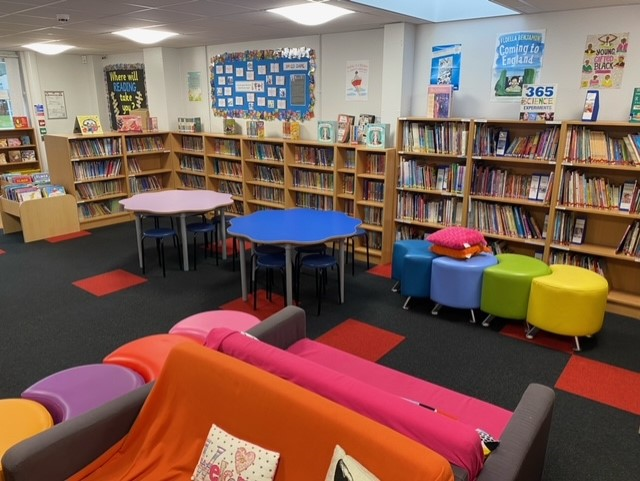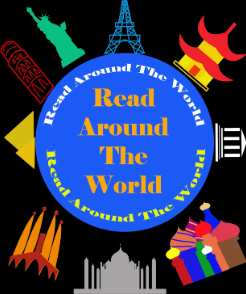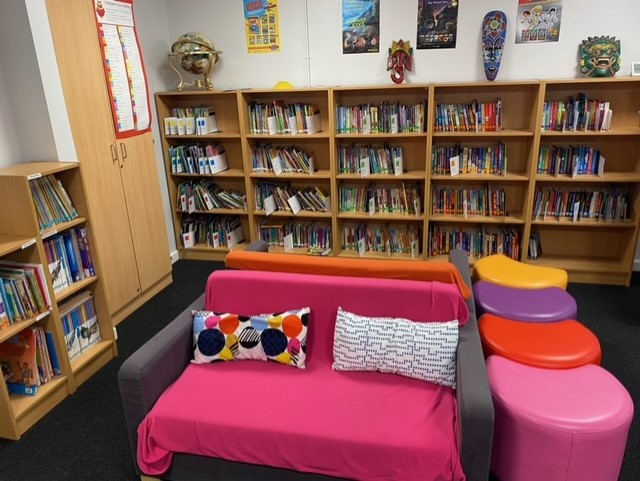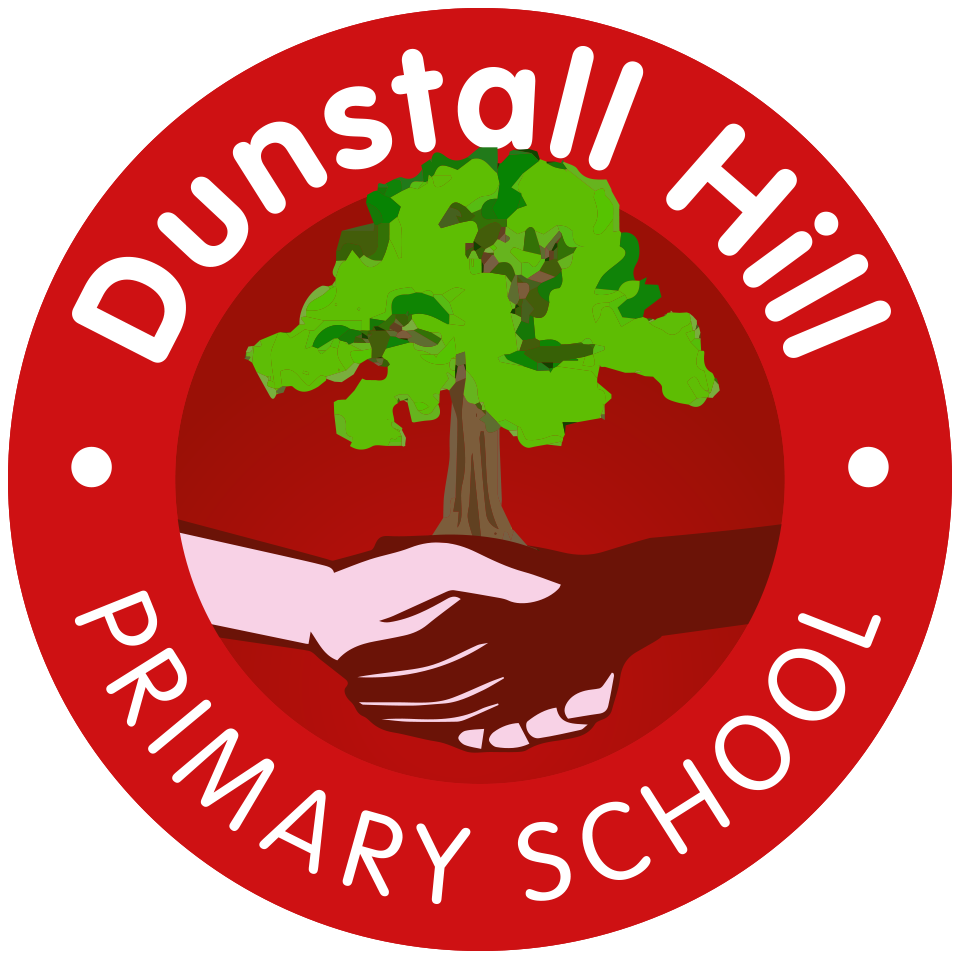english
English and the teaching of English is the foundation of our curriculum at Dunstall Hill Primary School. We have designed our English curriculum with the intent that all children become primary literate and progress to the best of their ability in the areas of reading, writing and speaking and listening by the time they leave our school in Year 6.
Regardless of starting point, we strive to ensure that all children will become fluent, insightful readers and skilled, creative writers to ensure their capability to succeed in all subjects. Our children will engage with a range of genres and develop their understanding of a range of fiction and non-fiction.
Furthermore, we have developed a curriculum that will instill in all children a love of reading and writing that we hope will stay with them for life. We understand that a good grasp of English is part of the ‘essential knowledge’ that is needed in society and we agree with the statement of the National Curriculum, that ‘pupils…who do not learn to speak, read and write fluently and confidently are effectively disenfranchised’
HOW DO WE TEACH WRITING?
Here at Dunstall Primary School, we have developed a curriculum with an ‘English approach’ rather than separating reading and writing in line with the new reading framework and to improve attainment and give children more purpose to their writing.
Our writing cycle structure has been developed through the use of ‘The 6 R’s’ for the teaching of English:
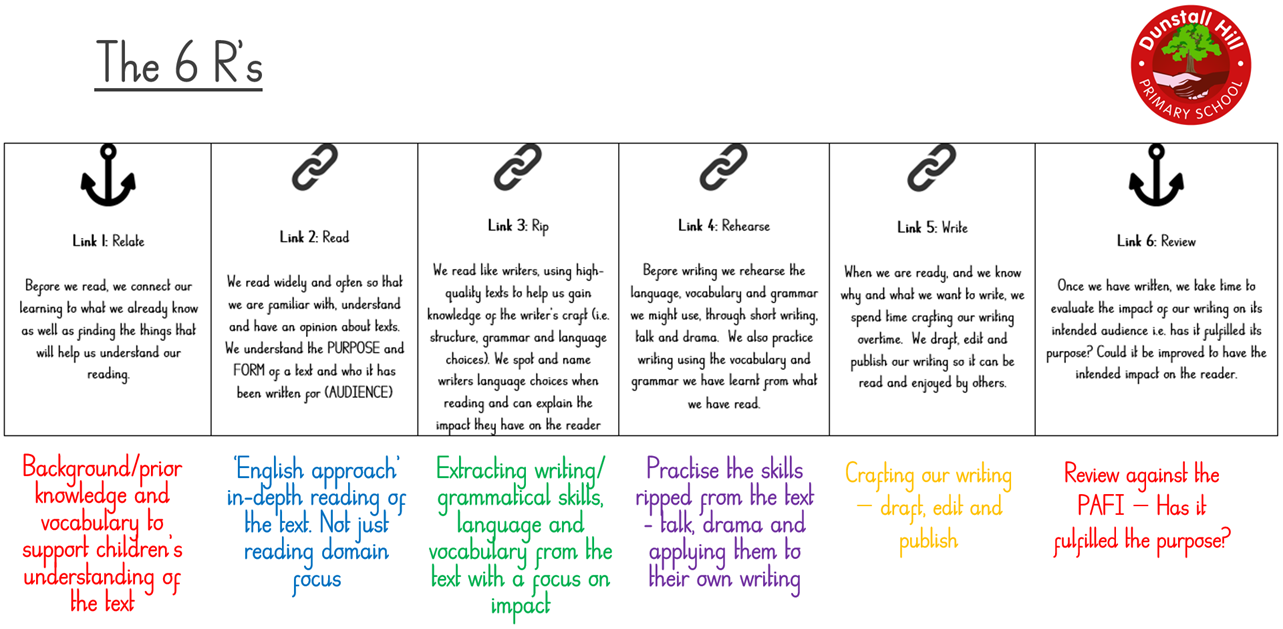
We use high quality, age-appropriate texts, modelling and shared/ collaborative writing to demonstrate good practice and encourage and promote oracy and rehearsal in order for our children to build confidence before writing. We also use drama such as thought tapping, hot-seating or conscience alleys to help pupils to think about another point of view.
Children and teachers work closely together to create models that are displayed in order to share ‘what a good one looks like’ and working walls provide support, encouragement, modelling and next steps that are appropriate for the genre of writing being taught.
Our children follow a cycle for writing where time is provided for planning, editing and drafting which gives children time to discuss and build on their ideas in pairs or in groups and reflect on their own work. Checklists are used for pupils to self or peer-assess in order to evaluate effectively as well as set themselves targets.
Teachers across the school also plan for opportunities to apply their English skills through pieces of writing in other subject areas which allows the children to apply the knowledge and skills that they have learned in a variety of different contexts.
Handwriting - Kinetic Letters
Handwriting is a physical activity that involves movement and recognition skills that need to be learnt and become part of the automatic cognitive skill set of the pupil. To achieve this, Dunstall Hill has chosen the Kinetic Letters handwriting programme.
Handwriting is of fundamental importance to educating our pupils because pupils who do not learn to read and write fluently and confidently are, in every sense, disenfranchised. The mastery of automaticity in handwriting is therefore one of the key priorities of the school.

The key principles of the programme are:
-
- Building physical strength underpins handwriting and concentration. This knowledge informs the working positions that children use for writing and the strengthening targets they work on.
- Pupils are not expected to do anything before they are developmentally ready for it.
- The different components of writing are mastered individually before being used in combination.
- Letters are learnt as movements, not as visual shapes, and movement remains central to developing automaticity in letter formation, flow and fluency.
- Posture is important in developing the correct position for handwriting and so children are taught how to organise their working position and paper position to enable comfortable and fluent writing from the start.
- Correct pencil hold is taught from the start (ie as soon as a tri-pod grip is developmentally appropriate).
- Reading and writing are reciprocal processes; strengthening handwriting skills will support reading and writing development.
Click here for videos showing how you can support your child with their handwriting.

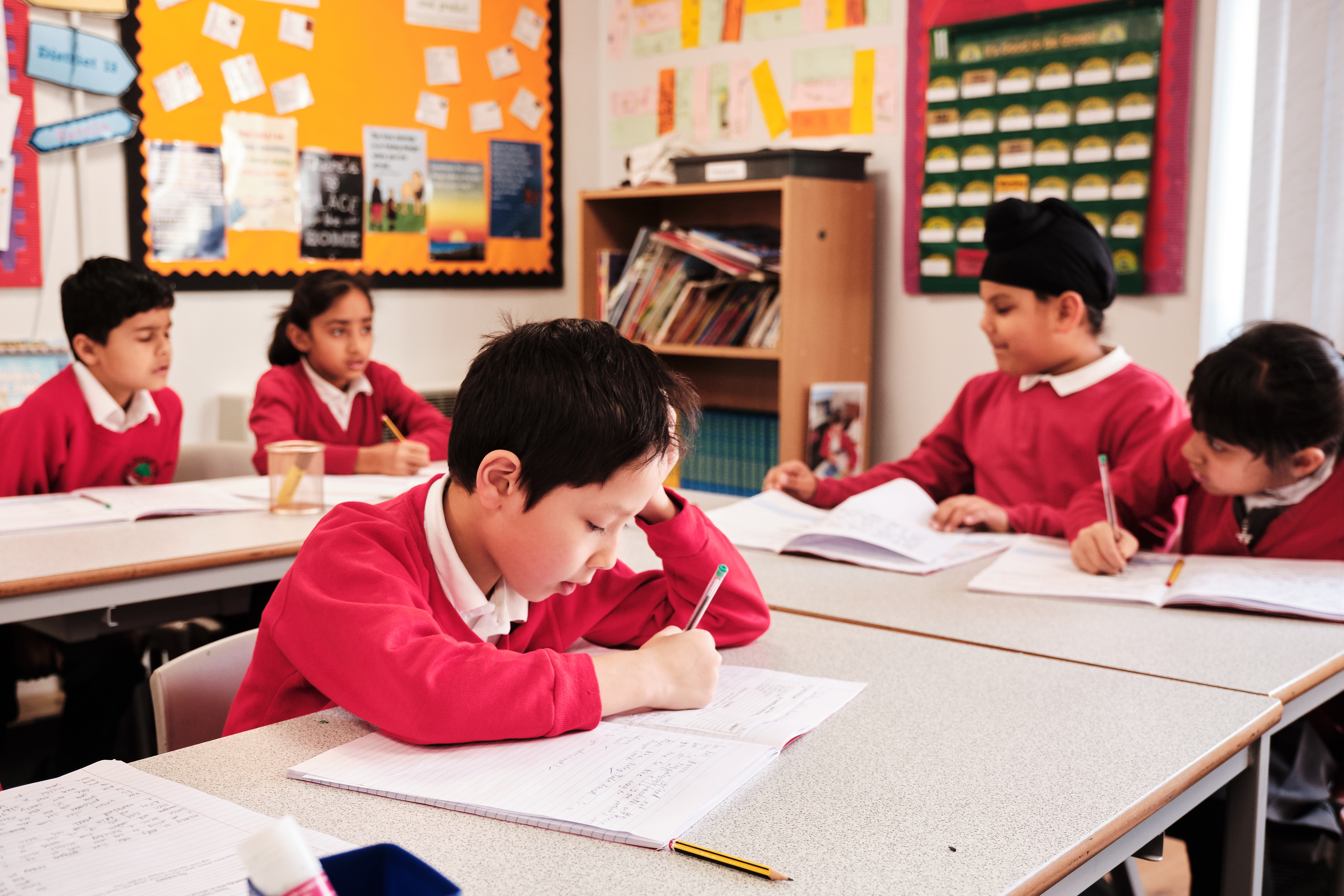
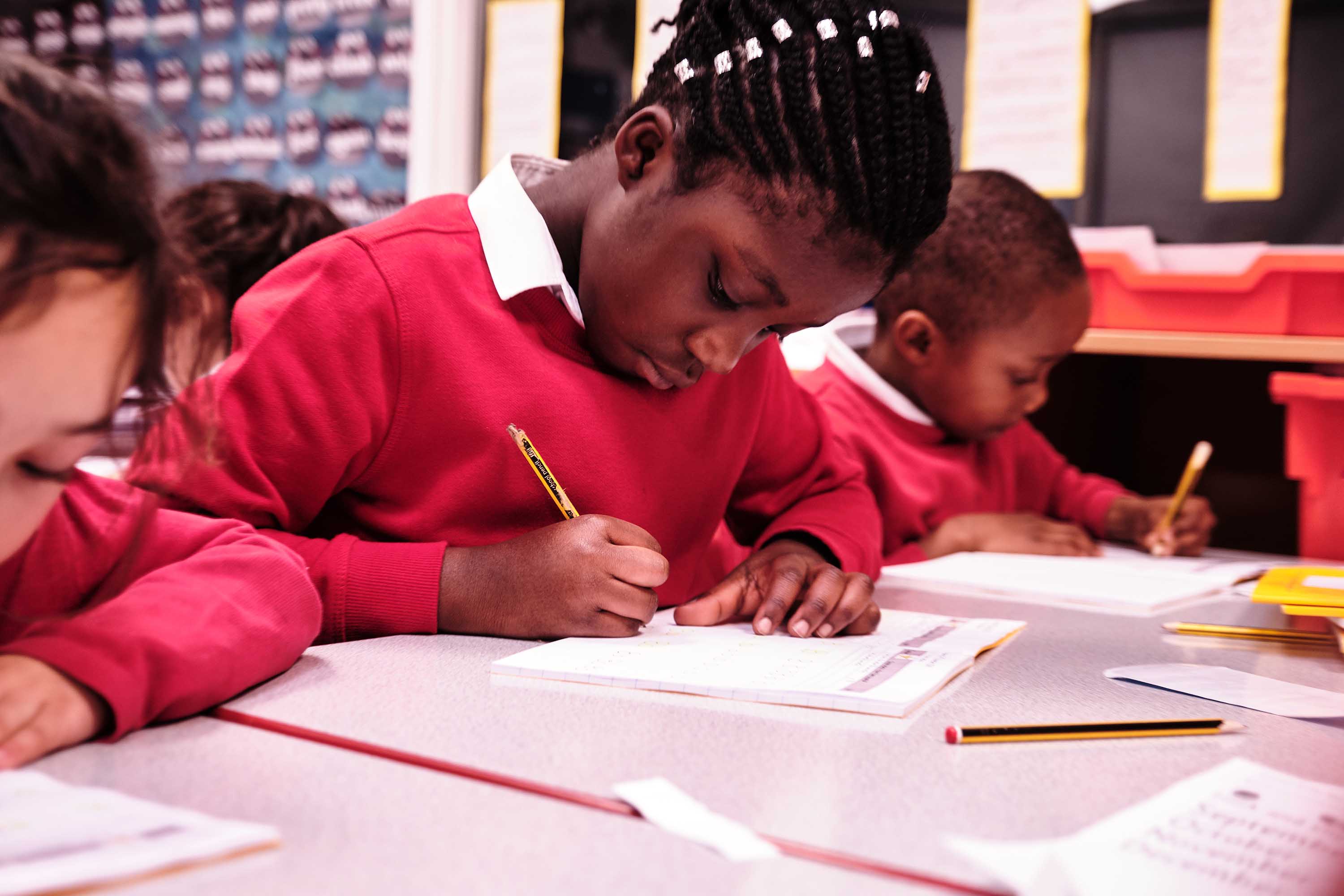
How do we teach reading?
Read, Write Inc
At Dunstall Hill Primary School, our children’s reading journey commences through Read, Write Inc Phonics.
We start this journey in Nursery, where children start to explore intial sounds. In Reception, children start the RWI programme and we aim for children to complete phonics by the end of Year 1.
Videos for parents
Understanding phonics
How to say the sounds
What is sound blending?
Reading in school
Reading is a developmental process and part of life-long learning. Early reading at Dunstall Hill starts with phonics, comprehension and reading for pleasure, and our practise reflects the importance of all three of these core areas in ensuring children become confident, fluent and competent readers. Before our children are able to read independently, talk and reading for pleasure is the foundation of reading.
To develop a broad vocabulary and an enjoyment and comprehension of stories, children need to be given the opportunity to listen to and talk about them from the earliest stages.
Pupils are encouraged to read for pleasure both inside and outside of school.
This is supported by:
- A vibrant, appealing and up-to-date selection of accelerated reader books which are chosen by the children weekly according to the level assigned to them by their half-termly ‘Star Reader’ test
- After school reading clubs
- Meetings and workshops with parents
- Regular book recommendations from other children
- Home reading booklets for parents
- Lunch time opening of the library
- Read around the world- a whole school reading competition/ incentive with certificates, visual representation in each class and postcards home to thank parents for their support
- Ongoing class texts read daily by the teacher
- MYON – an online library where children are set texts to read at home, often linking to topics
